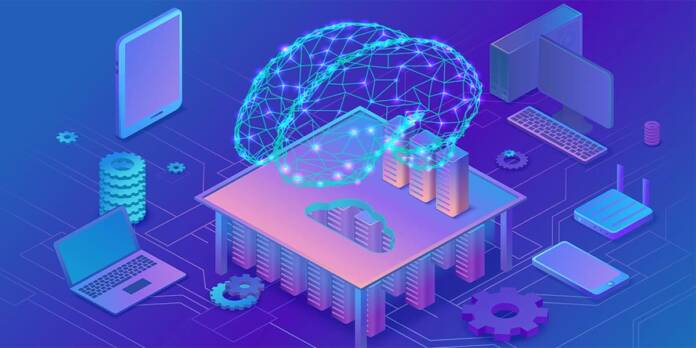Tech entrepreneur and developer Siqi Chen’s claim that GPT-5 will “achieve” Artificial General Intelligence (AGI) by the end of this year has caused a stir in the AI world.
If Chen’s claim is accurate, this breakthrough in AI technology could have far-reaching effects.
If GPT-5 achieves AGI, it would mark a milestone in AI history
“I have been informed that GPT-5 will complete its training this December and that OpenAI expects it to reach AGI«, Chen tweetedCEO of financial software company Runway and board member of virtual reality software development company Sandbox VR.
Chen’s statement implies that with an update to GPT-5, generative AI contents can be indistinguishable from those created by a human.
In the same instance, Chen commented that he did not mean to assume that the goal of achieving AGI with GPT-5 is a consensual interest within OpenAI, stating that “there are non-null people in there who think it will make it”.
The ability of an AI to learn and understand any task or concept that humans can do is known as AGI while AI refers to a machine that can perform specific tasks. The AGI is a higher level of AI that is not restricted to specific tasks or functions.
Expected Advantages of AGI
In addition to productivity improvements, AGI has the potential to bring significant benefits in other fields, as long as it is approached responsibly. One of the most promising applications of AGI is solving global problems, such as lack of health care, food shortages, and the effects of climate change. The AGI could also be of great help in medical and pharmaceutical research, sustainable food production, and the prediction and prevention of natural disasters.
Another important benefit of AGI is that it could help us better understand human intelligence and consciousness. The AGI study may provide valuable insight into how the human brain works and how its processes can be replicated in a machine. This could have a positive impact on fields like psychology and neuroscience.
However, there are also risks and drawbacks associated with developing AGI. The spread of misinformation and propaganda is a major concern, already an established topic of discussion. However, there is also the risk of automating human jobs and the impact this could have on the economy and people’s quality of life.
It is important to consider all the implications of the AGI before moving forward with its development. That is why many AI experts are discussing the need for proper regulations and ethics to mitigate the negative effects of AGI. Additionally, some leaders in the tech industry are calling for a pause on AI development to allow for a more complete assessment of the potential effects of advanced AI on society.
Implications of the power of AI
Although they are in the experimental phase and currently linked for research purposes only, Chen believes that with the power of chatbot plugins and GPT-5 “we are much closer” of achieving the AGI than many people believe.
The AGI raises significant concerns about the potential repercussions of giving AI so much power, even more so if its scope is open, thanks to tools like ChatGPT.
Elon Musk and more than a thousand leaders and technology experts signed an open letter last Wednesday, warning that the development of AI could accelerate the spread of false information and propaganda. The text emphasizes the idea that stopping any progress beyond GPT-4 would be in the best interest of humanity.
“We ask all AI labs to immediately stop, for at least six months, the training of AI systems more powerful than GPT-4. This pause must be public and verifiable and include all key players.”is indicated in part of the letter.
The premise of a pause in AI development is based on concerns that AI that is too advanced could have negative effects on society. Experts argue that if an AI can learn and understand any task or concept that a human can do, it is highly likely that the AI will be able to surpass human capacity in various areas, which could lead to a decrease in demand for human labor and, ultimately, to an impact on the economy.
Furthermore, with an AI that can create tasks on its own, there is a risk that it could generate new tasks that are detrimental to society. In addition to the aforementioned possible uses to spread disinformation, this technology could be used to hack systems or control drones and robots.
However, other AI experts argue that halting progress in AI development is not the solution and that AI regulation and ethics are critical to minimizing risks and ensuring its beneficial use.
In any case, if GPT-5 manages to reach the AGI, it would mark a breakthrough in the history of AI, with significant implications that transcend the technology market, influencing the economy and other aspects of society. It will be interesting to see how the discussion on the regulation and ethical use of AI evolves in the coming years and even months to come.













